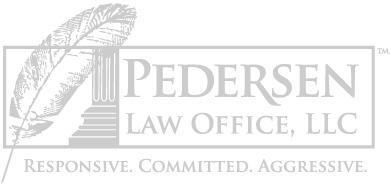Chapter 7 Bankruptcy
Chapter 7 is a legal process that helps people who cannot repay their debts get a fresh start. The court reviews the individual’s or family’s income, expenses, assets and debts to determine if they are entitled to debt relief. If the court determines it is unrealistic that the person will be able to repay their debts, the court wipes out the debts and gives them a fresh start. A Chapter 7 Bankruptcy can stop collection calls, stop garnishments and stop utility shut off.
Chapter 7 Qualification
Qualifying for Chapter 7 Bankruptcy is based on the average of your last six months of gross income. The six month average income is then multiplied by 12 to create a “yearly income”. You qualify for Chapter 7 Bankruptcy if your “yearly income” is below the current income allowance. Your income allowance is based on the amount of people in your household. If your income is above the income allowance, you may still qualify depending on your circumstances. An individual can only file Chapter 7 Bankruptcy once every 8 years. If you do not qualify for a Chapter 7 Bankruptcy, you may want to look at a Chapter 13 Bankruptcy.
Counseling Requirement
The bankruptcy court requires all filers to complete two credit counseling sessions provided by an approved bankruptcy counselor. One session is required prior to filing and one needs to be done after the case is filed. These sessions can be complete in person, over the phone or online.
Protected Assets
There is a misconception that when you file Chapter 7 Bankruptcy you lose all of your property. The truth is the bankruptcy court allows a person to keep any property that fits within the exemptions. Chapter 7 exemptions cover the value or equity you have in certain types of property. The most commons exemptions used are for a house, car, household goods, bank accounts, and retirement accounts. For property that does not fit into the common categories there is also a “Wildcard Exemption”. The Wildcard Exemption can be used to cover any type of asset, such as a recreational vehicle. The amount of available Wildcard Exemption depends on the equity in your home.
If an asset has a loan on it, such as a home mortgage or auto loan, the Chapter 7 Bankruptcy will likely not affect that loan if you reaffirm the loan. You are allowed to keep the asset and the loan keeps the original terms.
Dischargeable Debts
The following are common debts discharged in Chapter 7 Bankruptcy:
|
|
Non-Dischargeable Debts
The following are common debts that are not discharged in a Chapter 7 Bankruptcy:
|
The Process for a Chapter 7 Bankruptcy
Preparation. The first step toward a Chapter 7 Bankruptcy is meeting with an attorney for a consultation. The attorney will verify that you qualify for a Chapter 7 Bankruptcy, discuss what debts will be discharged and confirm you are able to keep all your property. If you decide that Chapter 7 Bankruptcy is right for you, a list of paperwork will be provided for you to bring to your next appointment. At your second appointment, the attorney will go through all the necessary information with you to prepare the bankruptcy case.
Filing Bankruptcy. When the bankruptcy case is ready, you will review the paperwork with your attorney and sign the documents. The papers will be filed with the bankruptcy court that same day. Roughly 30 days later there will be a court hearing where you will swear under oath that your bankruptcy paperwork is true and correct and answer any questions the trustee has. Usually this is the only hearing required. Assuming no objections, the court will grant your discharge approximately 60 days after your court hearing.
Home & Auto Loans. If you have any secured loans, such as a car loan, you may enter into a reaffirmation agreement. This document states that even though you filed bankruptcy you are choosing to still be liable for the debt. You must be current for the creditor to offer a reaffirmation agreement.
Pedersen Law Office, LLC offers free consults in all of our areas of practice and will meet with you personally to discuss your specific circumstances and see what options are available for you. Our law office serves the communities of Appleton, Neenah, Menasha, Oshkosh, Green Bay and their surrounding areas.


